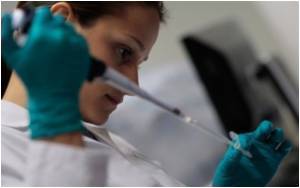
"The paper addresses one of the most urgent questions in the field of genetics and genomics, namely the impact of receiving unexpected information about high genetic risk for a life-threatening disease," said the lead author of the paper and 23andMe's Senior Medical Director Dr. Uta Francke.
The study looked at how people reacted when they learned for the first time that they carried a mutation in either the BRCA1 or BRCA2 gene that put them at higher risk for breast and ovarian cancer. The study included interviews conducted with 32 individuals found to be mutation carriers and 31 individuals found to be non-carriers. Five to ten percent of breast cancers occur in women with a genetic predisposition for the disease, usually due to mutations in either the BRCA1 or BRCA2 gene. The mutations at the center of this study are responsible for a substantial number of hereditary breast and ovarian cancers among women with Ashkenazi Jewish ancestry.
Those who acquired the potentially life-saving information not only took appropriate actions on their own behalf, but also notified relatives who might share that risk. In what the study described as a "cascade effect," a number of relatives who were subsequently tested discovered they too had one of the mutations.
The findings are important given that a frequent concern regarding direct-to-consumer testing is based on the assumption that it causes either serious emotional distress or triggers deleterious actions on the part of consumers. Individuals who learned they had the mutation said they did not suffer serious emotional distress, and did not take inappropriate actions. All but one of the 32 mutation-positive participants appreciated learning their BRCA mutation status. None of the 31 mutation-negative individuals misinterpreted their result to think they are free from all risks and safe to abandon routine cancer screening.
The study provides important preliminary data that suggest some of the bioethical concerns may be overstated, at least for the self-selected pool of individuals who seek DTC personal genomics information. The authors suggested that broader screening of Ashkenazi Jewish women for these three BRCA mutations should be considered."
Advertisement
Source-Eurekalert














